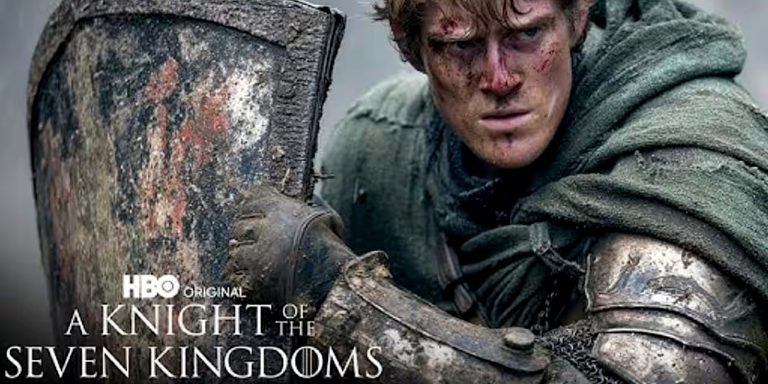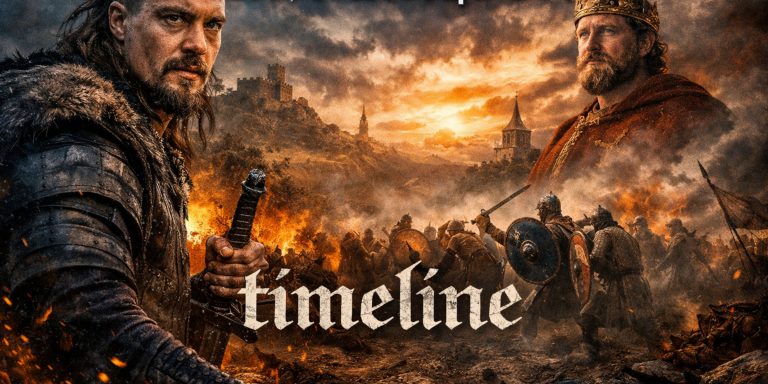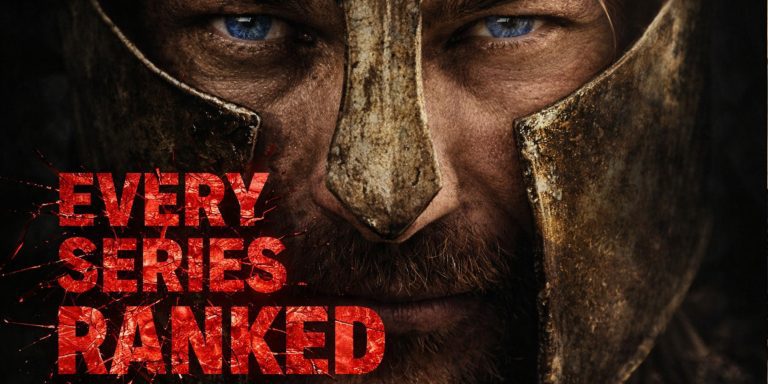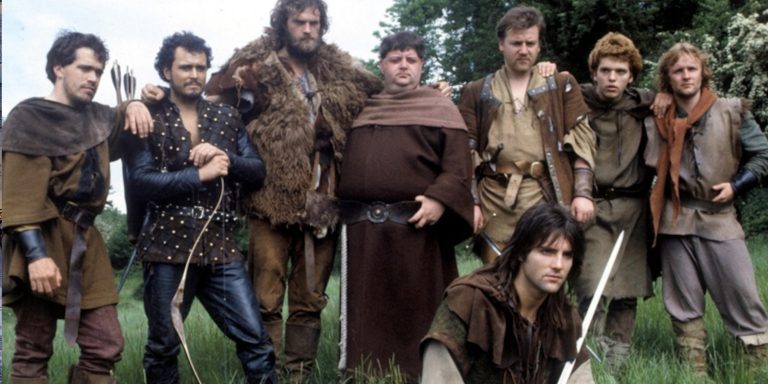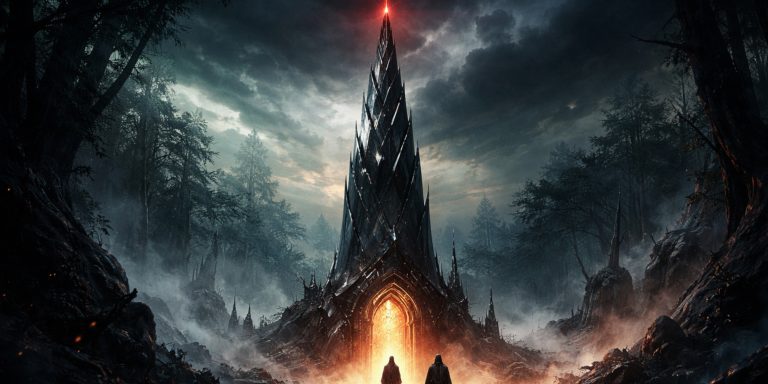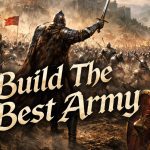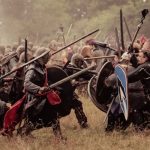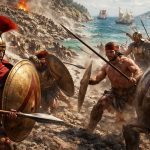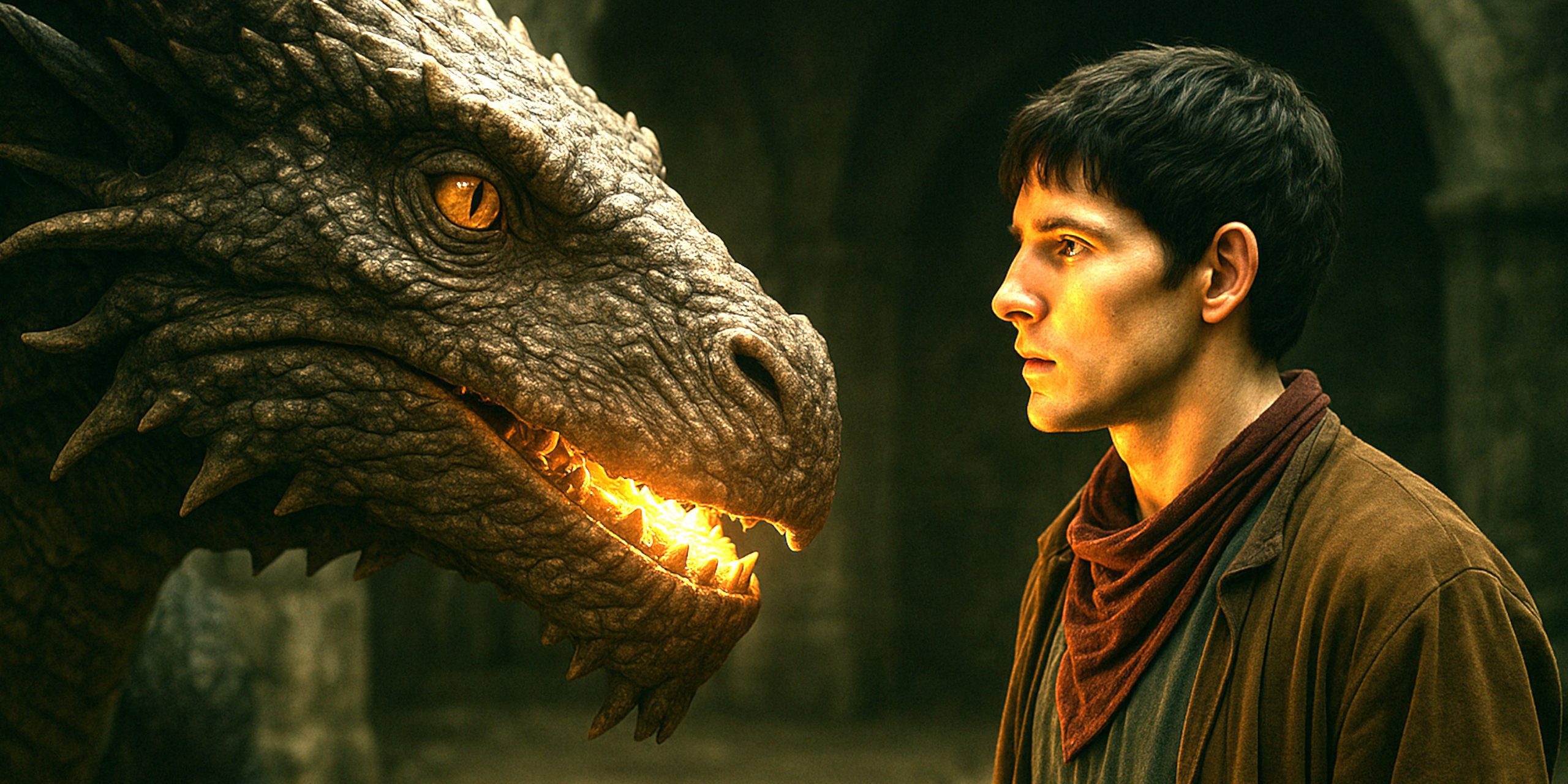
Kilgharrah isn’t just a dragon. He’s a walking, talking monument to the old world, the living echo of an age when magic didn’t have to hide. In BBC’s Merlin, he’s more than CGI fire and riddle-speak, he’s the moral stress test of the entire series.
Every time Merlin grows, Kilgharrah is there, pushing him further. Sometimes it feels like mentorship, other times like cruelty. But underneath all the smoke and prophecy, the Great Dragon’s purpose is simple: to make Merlin earn his destiny.
The Keeper of Ancient Balance
Kilgharrah’s origins are steeped in myth. The last of the dragons, he’s chained beneath Camelot as a warning, a living reminder of Uther Pendragon’s purge of magic. He has centuries of rage boiling in his chest and a memory long enough to hold grudges like gold.
Yet, even in captivity, Kilgharrah embodies balance. He’s neither good nor evil. He’s consequence. Every piece of advice he gives Merlin is soaked in that philosophy. Help Arthur, yes, but understand that light can’t exist without shadow.
It’s like he’s less mentor and more cosmic referee, ensuring that fate doesn’t tip too far either way.
The Dragon’s True Motive
Let’s be honest, Kilgharrah isn’t exactly a selfless guide. Half the time he’s manipulating Merlin into freeing him, and the other half he’s threatening him if he doesn’t. His version of “destiny” tends to align suspiciously well with his own goals.
But here’s the catch, Kilgharrah genuinely believes he’s right. He sees the bigger picture that humans can’t. To him, Camelot’s suffering is just a necessary chapter in a prophecy written long before men built thrones. His moral compass points toward cosmic justice, not kindness.
That’s what makes him fascinating. He’s not lying to Merlin, he’s just working on a much larger scale of right and wrong.
Fire and Betrayal
When Kilgharrah is finally released, it feels like a triumph, until he tries to burn Camelot to the ground. It’s the show’s first big moral gut-punch.
Here’s this majestic creature we’ve been taught to revere, turning out to be just as flawed and vengeful as any human king. Merlin’s choice to confront him, to use his inherited Dragonlord power to command him, is the real turning point.
That moment doesn’t just save Camelot, it proves Merlin has surpassed the old order. He’s no longer the dragon’s pupil, he’s the bridge between two worlds.
The Dragonlord’s Test
Everything Kilgharrah does can be seen as a test. Will Merlin follow destiny blindly, or find the courage to rewrite it? Will he let prophecy control him, or claim the right to question it?
Each trial the dragon presents, from saving Arthur to facing Morgana, forces Merlin to grow beyond obedience. By the end, when Kilgharrah finally shows mercy and wisdom, it’s because Merlin has passed that test. He’s learned that true power comes not from domination or prophecy, but compassion.
In a way, Kilgharrah’s purpose was never to guide Merlin to victory, but to make him worthy of it.
The End of the Old Magic
When Kilgharrah delivers his final monologue after Arthur’s death, the tone is almost funereal. He isn’t just saying goodbye to a friend, he’s witnessing the death of his own age. The dragons are gone, the old religion fading, and magic is retreating into legend.
Yet, there’s a bittersweet pride there. The last Dragonlord lives on, and with him, the legacy of magic’s truest balance. Kilgharrah’s story isn’t one of defeat, but of acceptance. He was never meant to survive this age, only to ensure its best parts carried forward.
The Seven Swords Takeaway
Kilgharrah is one of the most layered characters in Merlin. A philosopher wrapped in scales, a father figure with the emotional range of a thunderstorm, and the final guardian of an ancient truth: power means nothing without mercy.
In the end, he wasn’t testing Merlin’s magic, but his humanity. And that’s why the Great Dragon endures, not as a monster or mentor, but as the last whisper of an age when the line between power and pain was razor-thin.

